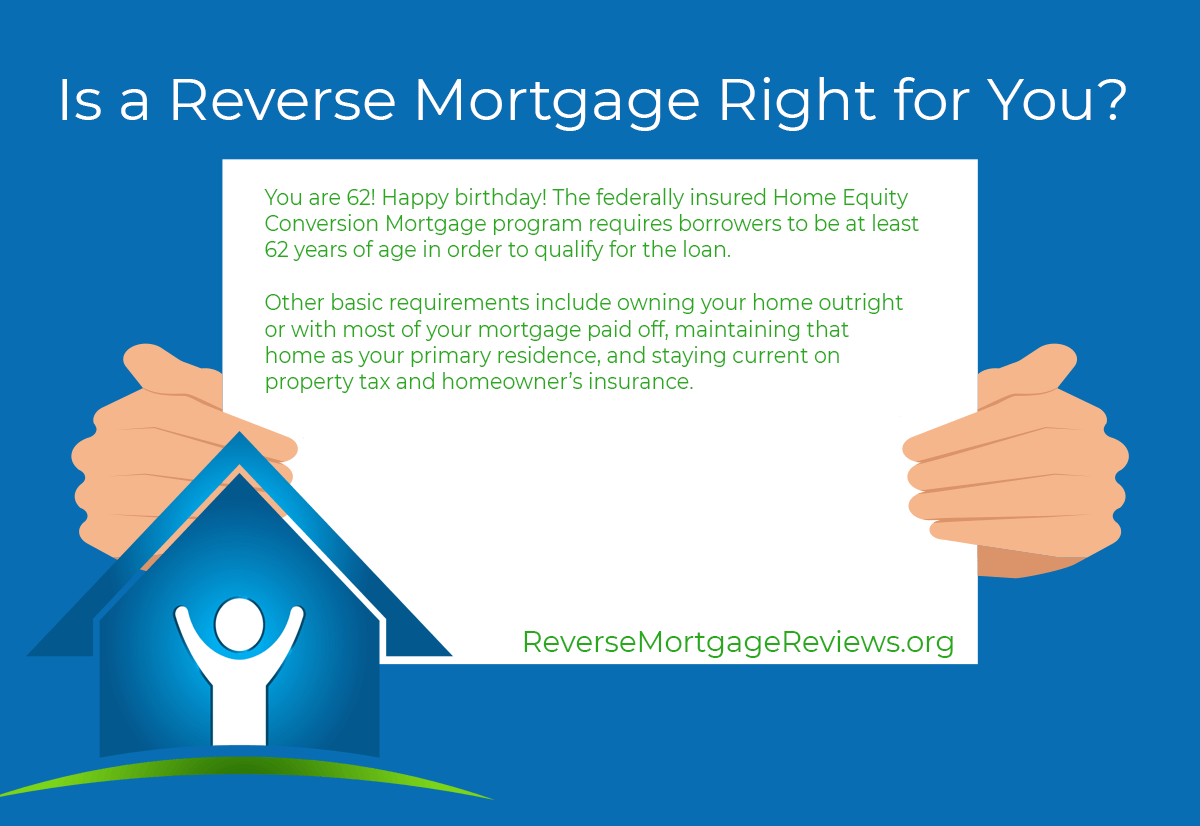Is a Reverse Mortgage Ideal for You? 6 Key Indicators to Consider!
Mike Branson Jr. – Author
Mike Branson Jr. has 25 years of experience in the mortgage banking industry. He has devoted the past 19 years to reverse mortgages exclusively. Mike has worked in several aspects of the Mortgage industry, including Loan Origination, Underwriting, and Management.1. You do not want to leave your home – ever.
If you are comfortable in your current home and have no plans or desire to move, a reverse mortgage can help you stay. With a federally insured reverse mortgage (HECM), you still retain ownership of your house and may stay there for as long as you live.
Your reverse mortgage doesn’t need to be repaid until you pass away or move out of the home. One feature of HECMs that is great for borrowers is that they are non-recourse.
That means you will never be required to pay back more than your house is worth at the time of sale, even if your loan balance exceeds your home’s appraised value.
2. Or, you DO want to move.
Conversely, you may be considering a new location. Many people opt to move in their later years, Whether to be closer to family or to live in a more temperate climate.
Another reason is that you can move into a more aging-in-place-friendly house, perhaps to a single level or one with wider hallways.
There’s a reverse mortgage for that, called the HECM for Purchase.
This program allows you to purchase a new home and take out a reverse mortgage simultaneously, cutting down on costs and paperwork.
3. You’re ready to retire?or at least planning for it
Reverse mortgages are not just a way to get cash now?they can also be used as a financial planning tool.
Some financial planners have suggested that getting a reverse mortgage as a standby line of credit can help delay the need to tap into your retirement portfolio or apply for your Social Security benefits.
With an adjustable-rate line of credit, you can still get an upfront amount if you need money to pay off an existing mortgage or cover mandatory obligations as required through the HECM program.
However, you can keep your remaining proceeds untouched in a line of credit that grows at the current rate of interest plus 0.5% on an annual basis. In other words, the amount of loan money available increases over time.
4. You want to make some home repairs but don’t want a HELOC.
Are there some home improvements you have wanted to do, such as installing a new roof or renovating your master bathroom?
Rather than making monthly payments on a home equity line of credit (HELOC) or home equity loan, a reverse mortgage could supply the funds you need?and you don’t need to pay it back until you leave your home.
HELOCs also can restrict how you use your loan proceeds, but with an HECM, you can use that money however you see fit if you continue to pay taxes and insurance and maintain your property.
Also See: HECM vs HELOC Loan Comparison: Which is Best for You?
5. You just finished paying off your mortgage
One condition of the HECM program is that it must take a “first-lien” position, meaning if you have a “forward” mortgage, you will need to use your reverse mortgage proceeds to pay it off.
If that mortgage has already been paid off, you will have more home equity to access when you take out a reverse loan. Let’s say you’re 67 and have a home valued at $350,000. In one scenario, you still owe $38,000 on your mortgage.
Plug that into our calculator, opting for a fixed-rate line of credit loan option, and you would qualify for a total principal limit of $151,342 versus $189,342 if your mortgage were paid off.
The difference comes in the amount you can receive upfront when the loan closes. With an existing “forward” mortgage, you can access about $74,202 at closing.
But without that mortgage balance, your upfront proceeds jump to $112,202. Per the HECM program rules, you must wait one year before closing before you can access the remainder of your proceeds.
6. You are 62!
The federally insured Home Equity Conversion Mortgage program requires borrowers to be at least 62 years of age to qualify for the loan.
Other essential requirements include owning your home outright or with most of your mortgage paid off, maintaining that home as your primary residence, and staying current on property tax and homeowner’s insurance.
Summary
When researching a reverse mortgage, you must consult your family and trusted financial advisor to weigh the pros and cons. Learn more about how a HECM loan might be right for you by contacting one of our top reverse mortgage lenders or checking your eligibility with our free reverse mortgage calculator.
|
No Comments on “Is a Reverse Mortgage Ideal for You? 6 Key Indicators to Consider!”
|


